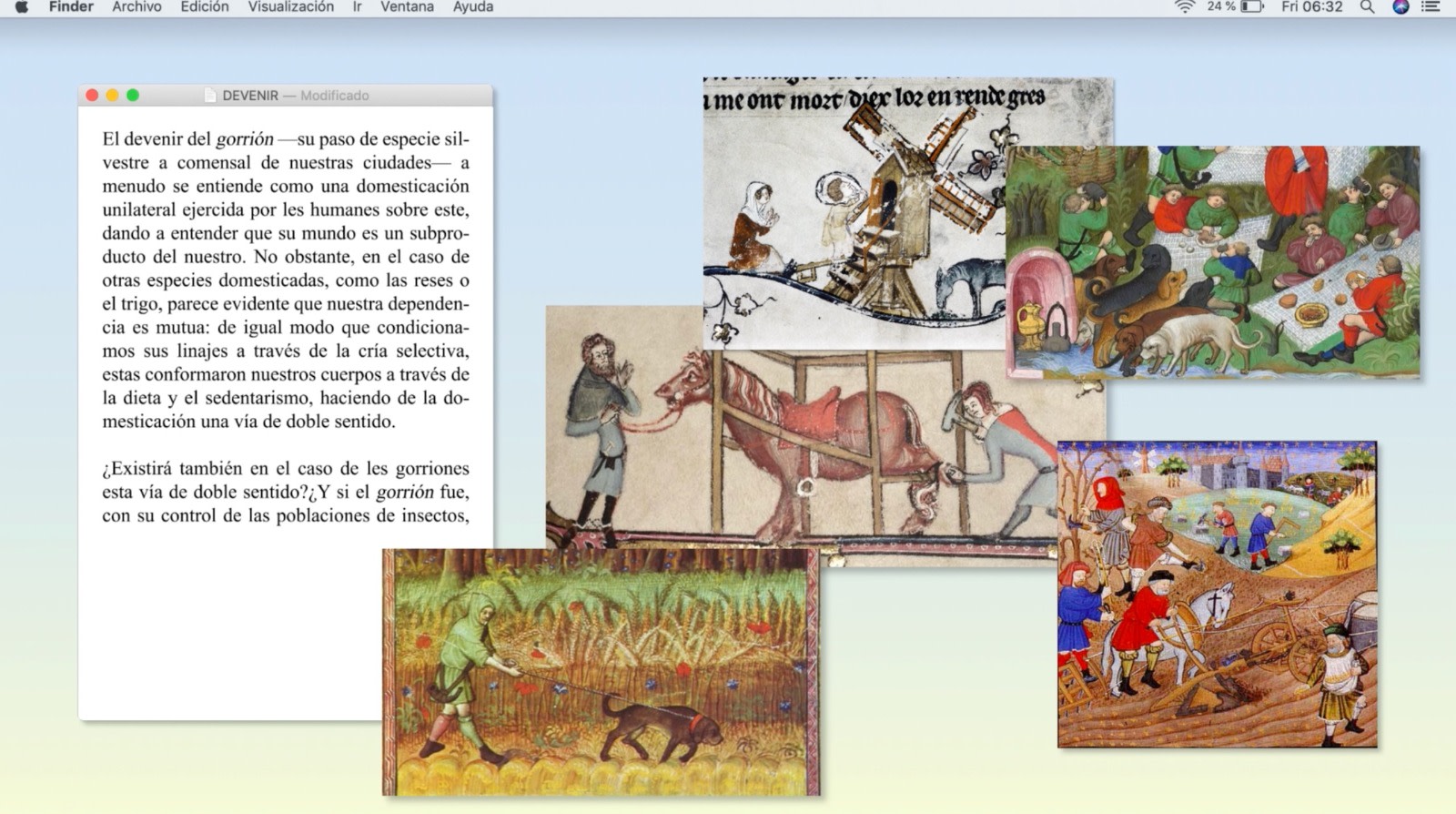Composting Fields #3
Deadline
December 4th, 2022
Typology
Video Essay
Coordinated by
Lucía Millet
Lucía Ugena

Composting Fields proposes an experimental format of knowledge production whose aim is to give space to the work of young thinkers and artists. By the creation of a safe working space, it generates a collective exchange around a specific work. This process materializes in a performative video that illustrates the relationship between the thesis, the process of sharing and its links to Visual Culture. It also gives access to a bibliographic archive containing all the materials worked on and consulted during the development of the project. In this way, it configures a platform for open and non-standardized knowledge. By creating-with, meaning materializes. Text, image and sound transform the reading experience, playing with the normative access to theory.
Our research addresses the place of knowledge in post-capitalist society. We believe that it is necessary to rethink institutional power structures from within and to imagine new ways of doing that give value to young research; to create a collectivity that hacks this working space marked by precariousness. As young researchers, we are affected by the distance between contemporary ways of life and academic work, where both discourse and practice seem to be isolated in a metadiscursive theoretical spiral; the disconnection between the inside and the outside of the institution. In rejection to this, the process of composting builds out of materials whose use is hegemonically over. Recycling research involves considering the subject matter as mutable, fertile and interconnected. Giving these materials another life and creating from them a new piece through a process of collective imagination. Composting questions the act of producing itself.

COMPOSTING FIELDS #3: Things parliament
"An actant is a source of action that can be either human or nonhuman; it is that which has efficacy, can do things, has sufficient coherence to make a difference, produce effects, alter the course of events. It is "any entity that modifies another entity in a trial," something whose "competence is deduced from [its] performance" rather than posited in advance of the action. Some actants are better described as protoactants, for these performances or energies are too small or too fast to be “things”. I admire Latour's attempt to develop a vocabulary that addresses multiple modes and degrees of effectivity, to begin to describe a more distributive agency". Vibrant Matter. A Political Ecology of Things Jane Bennett. 2010.
The chair, the table, the laptop, and the glass appear to be still. We usually think of them as stable things. An image created by our habitual encounters. The compass of an absolute rhythm that organizes our social and political life. The notebook, the phone and the rests of mandarin attract our attention. Emerging capacities that exceed representation. We move towards them, interact with them, are altered by them. Is this thought now in motion? The white light and the gas prices situate the process. A performance that hacks the normative frequency. These materials are in fact vibrating, following their own tempo. And while these words are being articulated, written, and spoken, multiple sensible actions are taking part in a common becoming. What is the difference between to conquer and to care? In terms of action, human temporality is part of what we call the victory quest. A narrative which stabilizes, hierarchizes. Spacializes. One which takes for granted the nature of things. In that narrative, there is usually a privileged object, essential to its kind. An agent that seems to speak louder than the others. What makes it visible within a specific historical event? A structural distinction between life and matter. When the focus on the causes broadens –distancing itself from we, the protagonists actors– thing power takes space. Distributes agency. Generates an aesthetic negotiation that rejects the inherited explanation of linear causality. An object-oriented methodology proposes mutable –and suspicious– scenarios for questioning the tensions between our discursive, anthropocentric logic and our lively ecology. We are looking for a narrative, a text-based thesis whose characters approach materiality, understanding it as something alive, effective and interconnected: a multiplicity of agents that, with their assemblage, participate in the production of the present.
Find here the terms and conditions for the open call.